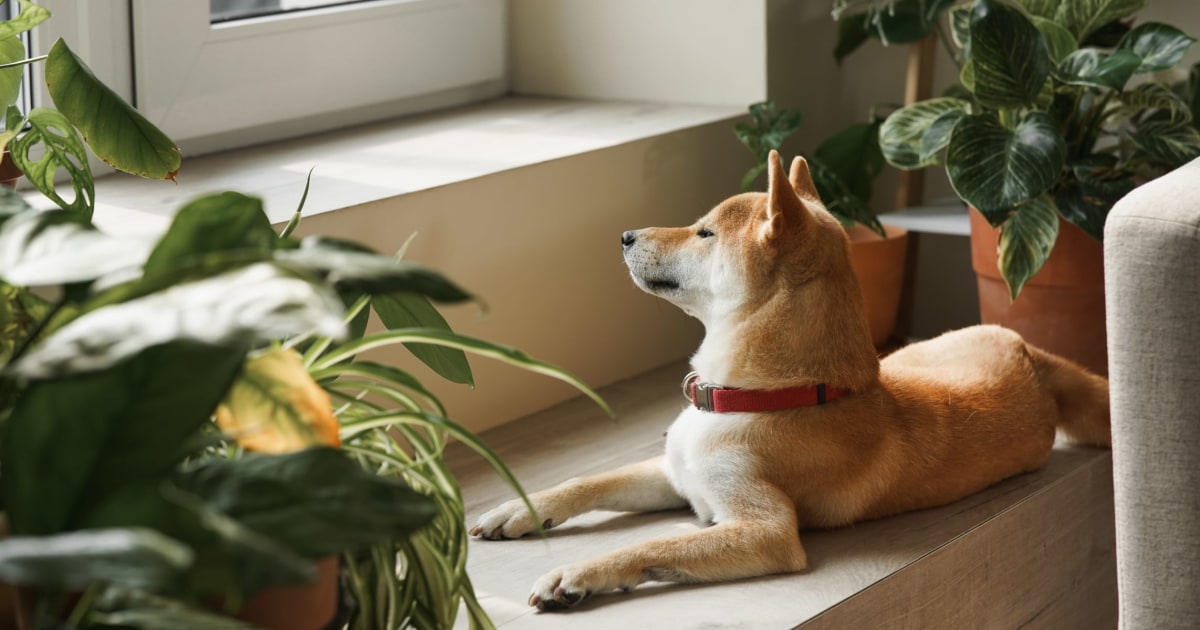Anyone who really, really loves their pet knows houseplant shopping can be challenging. Being a full time pet and plant parent means certain antics are possible, like your dog digging through soil or your cat chewing on leaves — so, pet owners must ensure those plants are safe for their curious animal friends.
Dr. Nicole Savageau, a board-certified veterinarian with The Vets, says that choosing harmless indoor plants is “essential for the well-being of your pets,” and that unsafe plants can lead to health risks in multiple ways.
To help you choose the best pet-safe plants, we asked experts to share their top choices, and their advice for ensuring pets can live in harmony with your indoor garden.
SKIP AHEAD: The best pet-safe plants | How to care for pet-safe plants
Our top picks
How we picked the best pet-safe plants
With the sheer number of different plant species available to shop, choosing the right one can be overwhelming. We consulted experts in veterinary medicine to find the best pet-safe plants, and used the following criteria to guide us:
- Plant toxicity: “Toxic plants can vary in the type and severity of toxins they contain. Some may have toxic leaves, while others can have toxic berries, seeds, or bulbs,” says Dr. Karyn Bischoff, a veterinary toxicologist at Cornell University’s College of Veterinary Medicine. “Many plants prefer not to be eaten, so they have developed some very creative ways to prevent being munched on.” The leaves of low-maintenance plants, like philodendron, pothos, and monstera, for example, can cause pain and swelling with just one bite. “The plant cells contain little containers of microscopic spears (called raphides) that continually baste in a cocktail of irritant chemicals. When a person or other animal bites into the leaves, the spring-loaded spears penetrate the surface of the mouth,” she says. Other plants, like the sago palm, can be sneaky in their approach toward dogs through a seed or broken stem. “He or she will have gastroenteritis with vomiting, diarrhea, and abdominal pain. After a day or so, they’ll feel as good as new, but the worst is yet to come: they get liver failure after another day or two, and it’s usually lethal,” Bischoff adds. Pet owners should consult with their veterinarian or refer to reliable sources like the American Society for the Prevention of Cruelty for Animals (ASPCA) for accurate lists of toxic and non-toxic plants before shopping.
- Physical dangers: Bischoff also cautions against plants that may pose a physical danger to your pets: “There are some, such as cacti, that can cause physical harm to animals because they have needles that can penetrate the skin or the membranes of the mouth, tongue, nose, or eyes, and others like agave have sharp edges to their leaves that can cut into skin.” She also warns of seeds with sharp edges that can cause damage, and larger seeds that can become stuck in your pets’ mouth or digestive system.
Best pet-safe plants
Find our expert-recommended choices for the best pet-safe plants below, along with light and watering instructions.
Spider Plant
Both Bischoff and Savageau recommend the spider plant, and with its green arching leaves, it’s a great statement piece for any home. Besides being pet-safe, the spider plant is also known for its air-purifying qualities, making it both a beautiful and functional addition to your household. Place it in a hanging basket for extra flair.
Ideal Lighting: Low to bright and indirect | Watering Schedule: When soil is mostly dry
Peperomia
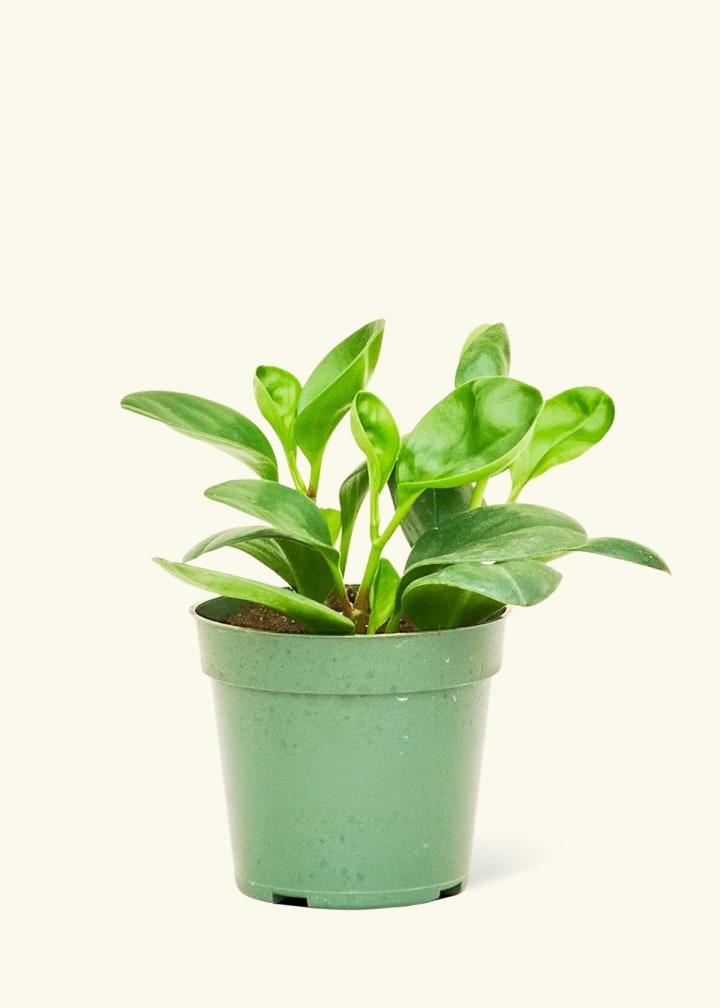
Due to their fleshy, multicolored leaves, peperomias are often mistaken for succulents. Bischoff recommends this pet-safe option, and with over 1500 species, pet owners have plenty of choice and flexibility in selecting a peperomia that matches their style.
Ideal Lighting: Species-dependent | Watering Schedule: Species-dependent
Hens and Chicks
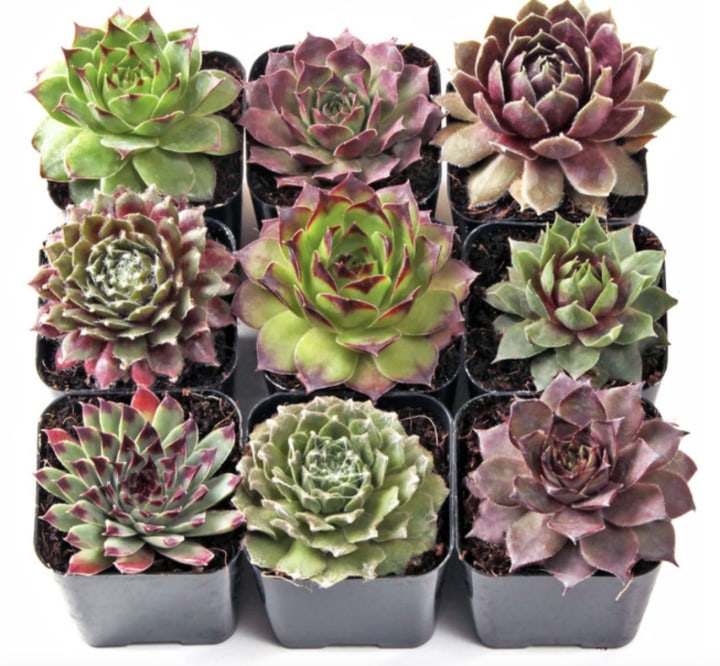
Also called the “house leek,” Bischoff recommends these thick, pointed rosettes as a succulent option for plant-loving pet owners. Because of its low-maintenance care routine, this plant is great for corners and crevices where other plants may have a hard time growing (and where your pet may have a hard time reaching it).
Ideal Lighting: Bright and direct | Watering Schedule: Minimal, only when soil is fully dry
Purple Passion Plant
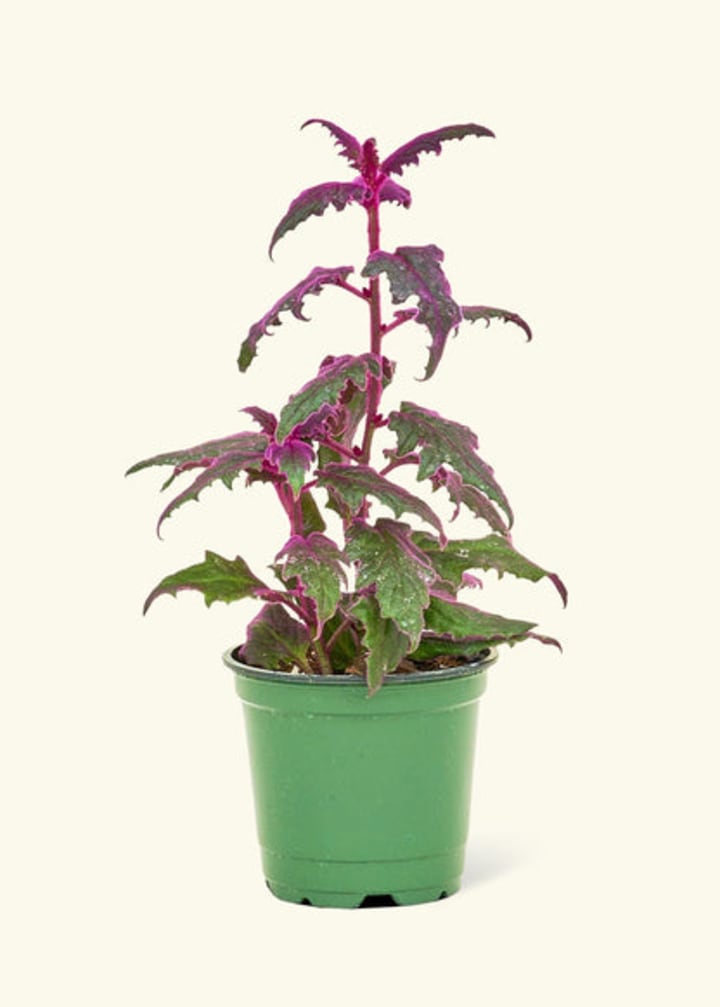
The purple passion plant gets its vibrant color from the tiny hairs that cover its leaves and stem. Bischoff recommends this velvety plant for pet owners, and it would be especially suited for people who want to add a colorful accent to their homes. Thanks to its trailing vines, the purple passion plant is commonly used as a decorative element, and looks especially good in a hanging basket.
Ideal Lighting: Bright and indirect | Watering Schedule: Once a week, or when soil is totally dry
Boston Fern
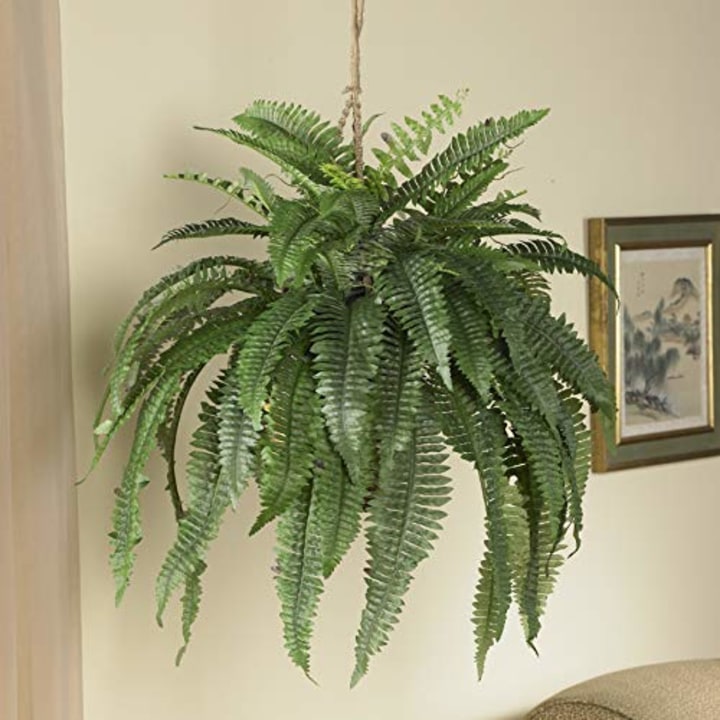
The Boston fern is an arching, blue-green plant with plenty of shady fronds and foliage. Though your pet may enjoy lounging underneath this classic houseplant on a sunny day, Bischoff and Savageau recommend the fern not for its aesthetic qualities, but for its pet-safe properties — the impressive display is just an added bonus.
Ideal Lighting: Bright and indirect | Watering Schedule: Once a week, keeping soil slightly moist
Bamboo Plant
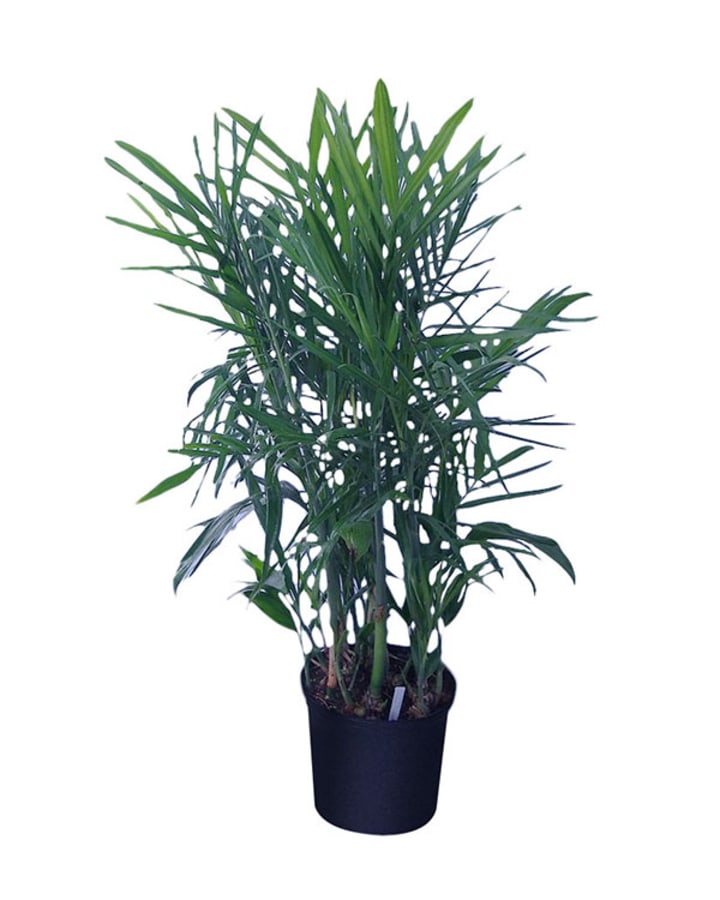
With its tall green canes and narrow, clustered leaves, golden bamboo is a plant that can grow in large pots. Bischoff recommends this for pet owners who want tall plants, but be careful when shopping — bamboo has over 1,000 different species, some of which, like lucky bamboo, are toxic to cats.
Ideal Lighting: Bright and direct | Watering Schedule: 2-3 times a week, keeping soil slightly moist
Herbs
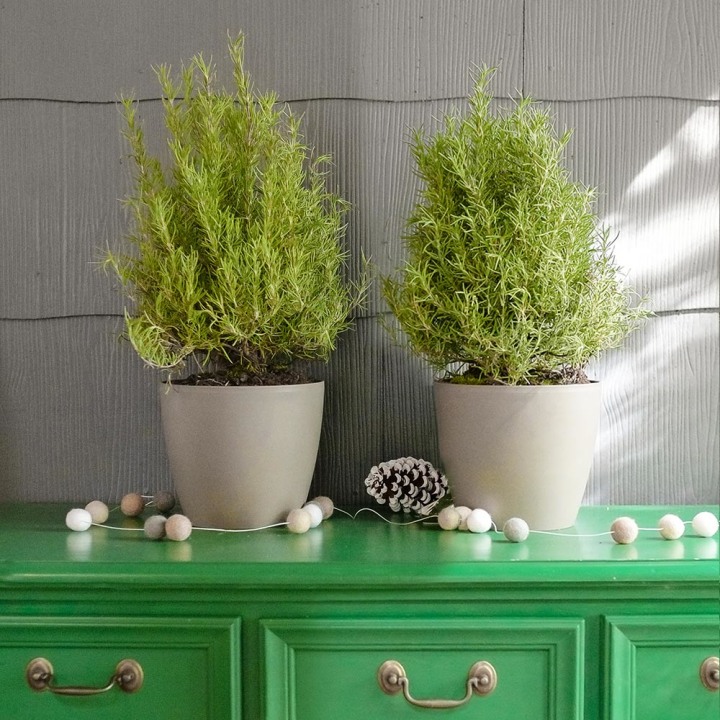
For pet owners who want edible pet-safe plants, Bischoff suggests an assorted variety of herbs that can be grown indoors. She names basil, parsley, cilantro and rosemary specifically, all of which add a fragrant, burst of green to any space — and are also safe for both you and your pet to consume.
Ideal Lighting: Species-dependent | Watering Schedule: Species-dependent
Meet our experts
At Select, we work with experts who have specialized knowledge and authority based on relevant training and/or experience. We also take steps to ensure all expert advice and recommendations are made independently and without undisclosed financial conflicts of interest.
- Dr. Nicole Savageau is a board-certified veterinarian with The Vets. Her professional interests include feline medicine (she adores cats), preventative care, and cytology.
- Dr. Karyn Bischoff is a veterinary toxicologist and associate professor of practice at Cornell University’s College of Veterinary Medicine. Her research interests include pet food safety, domestic animals and the food chain.
- Dr. Dana Varble is a board-certified veterinarian and the Chief Veterinary Officer at North American Veterinary Community.Her professional interests include organized veterinary medicine, learning methodology, venomous bites and stings and antivenom development.
Why trust Select?
Ashley Morris is an associate reporter at NBC Select and a journalist who regularly covers beauty, home and lifestyle. For this story, she interviewed veterinary experts to gather their guidance on what to look for when shopping for pet-friendly indoor plants.
Catch up on Select’s in-depth coverage of personal finance, tech and tools, wellness and more, and follow us on Facebook, Instagram, Twitter and TikTok to stay up to date.
